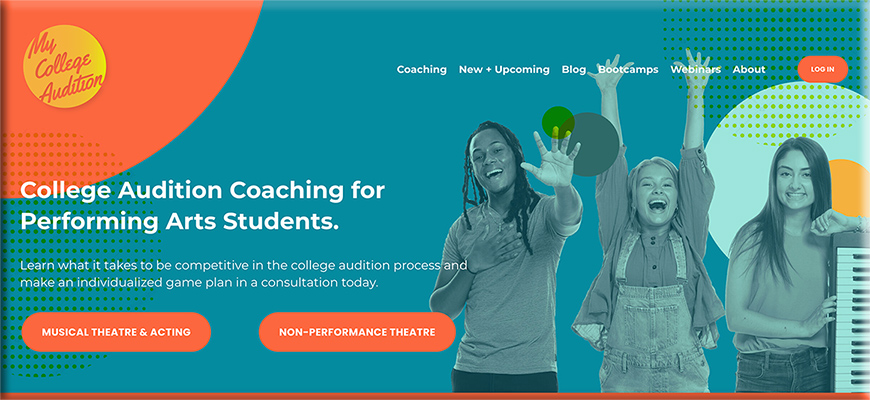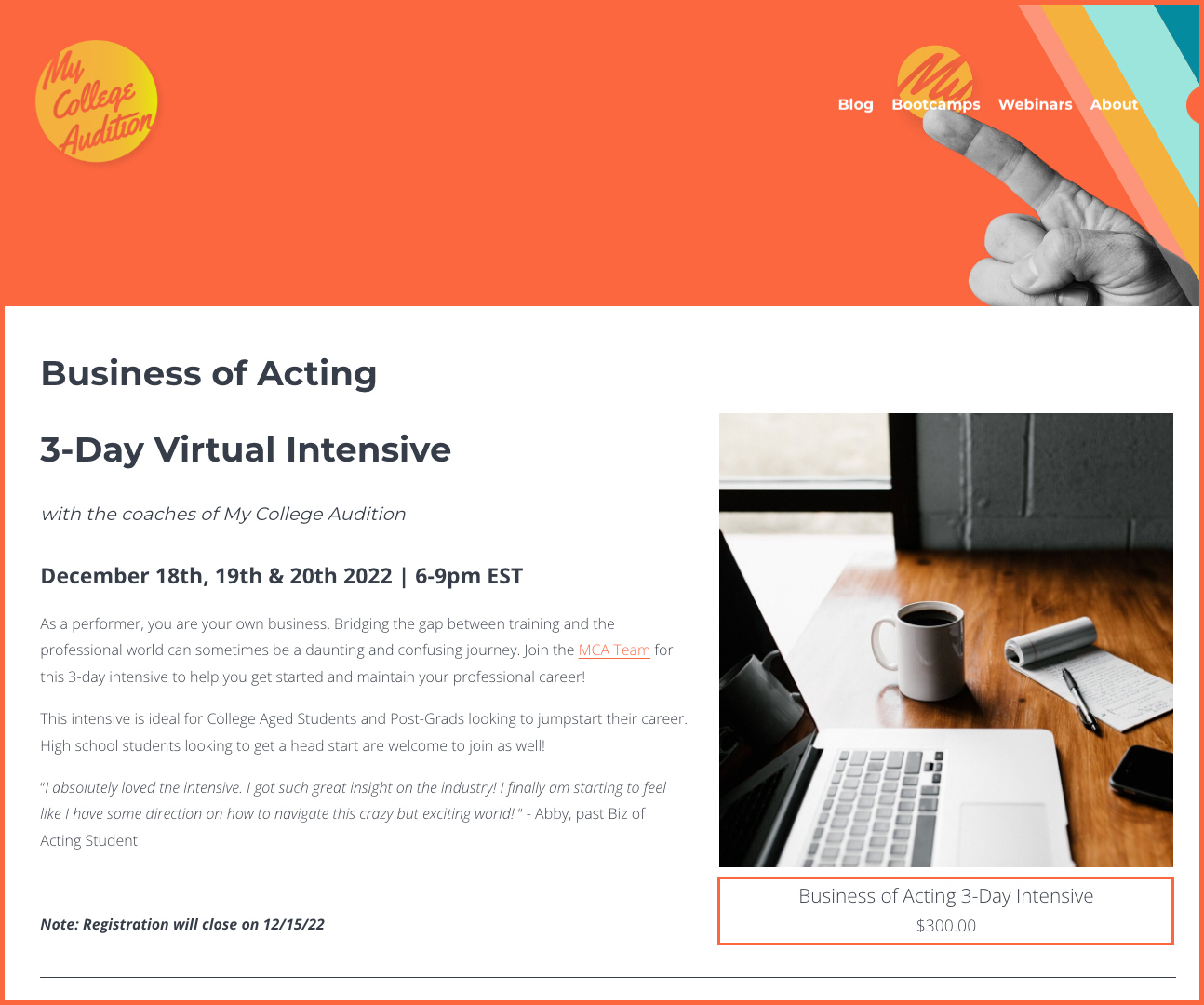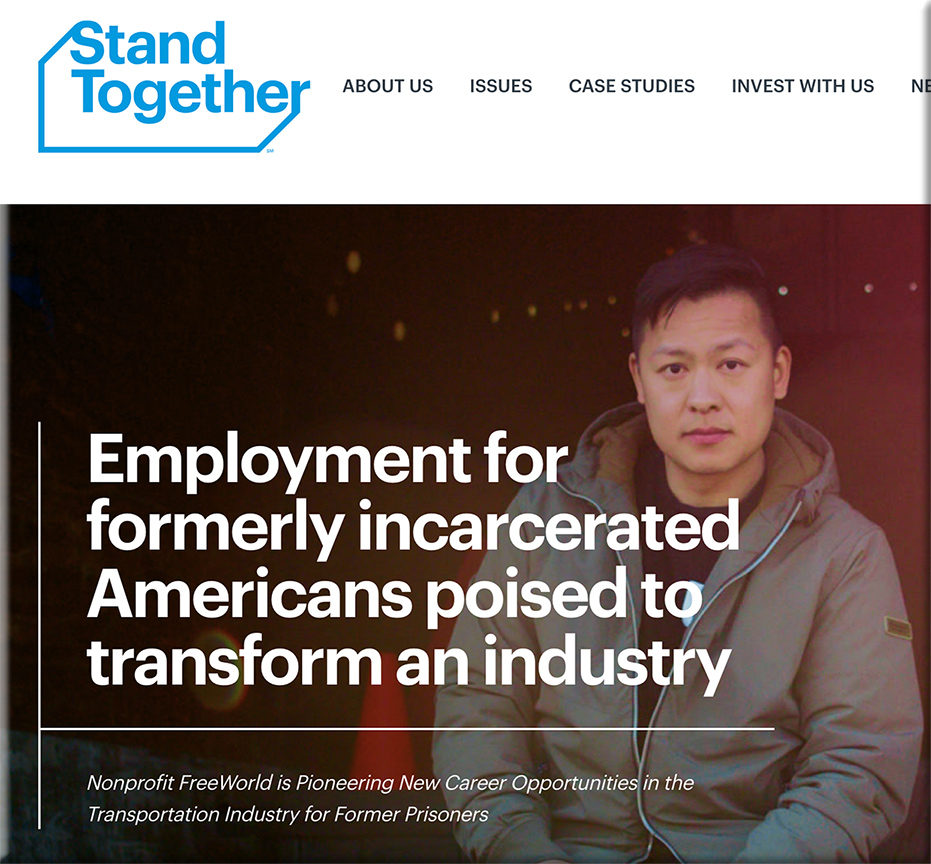From DSC:
Our son recently took a 3-day intensive course on the Business of Acting. It was offered by the folks at “My College Audition” — and importantly, the course was not offered by the university where he is currently working on a BFA in Acting. By the way, aspiring performing arts students may find this site very beneficial/helpful as well. (Example blog posting here.)

The course was actually three hours of learning on a Sunday night, a Monday night, and a Tuesday night from 6-9pm.

He learned things that he mentioned have not been taught in his undergrad program (at least not so far). When I asked him what he liked most about the course, he said:
- These people are out there doing this (DSC insert: To me, this sounds like the use of adjunct faculty in higher ed)
- There were 9 speakers in the 9 hours of classtime
- They relayed plenty of resources that were very helpful and practical. He’s looking forward to pursuing these leads further.
He didn’t like that there were no discussion avenues/forums available. And as a paying parent, I didn’t like that we had to pay for yet another course and content that he wasn’t getting at his university. It may be that the university that he’s studying at will offer such a course later in the curriculum. But after two years of college experience, he hasn’t come across anything this practical and he is eagerly seeking out this type of practical/future-focused information. In fact, it’s critical to him staying with acting…or not. He needs this information sooner in his program.
It made me reflect on the place of adjunct faculty within higher education — folks who are out there “doing” what they are teaching about. They tend to be more up-to-date in their real-world knowledge. Sabbaticals are helpful in this regard for full-time faculty, but they don’t come around nearly enough to keep one’s practical, career-oriented knowledgebase up-to-date.
Again, this dilemma is to be expected, given our current higher education learning ecosystem. Faculties’ plates are full. They don’t have time to pursue this kind of endeavor in addition to their daily responsibilities. Staff aren’t able to be out there “doing” these things either.
This brings me back to design thinking. We’ve got to come up with better ways of offering student-centered education, programming, and content/resources.
My son walked away shaking his head a bit regarding his current university. At a time when students and families are questioning the return on their investments in traditional institutions of higher education, this issue needs to be taken very seriously.
Also potentially relevant for some of the performing arts students out there:












